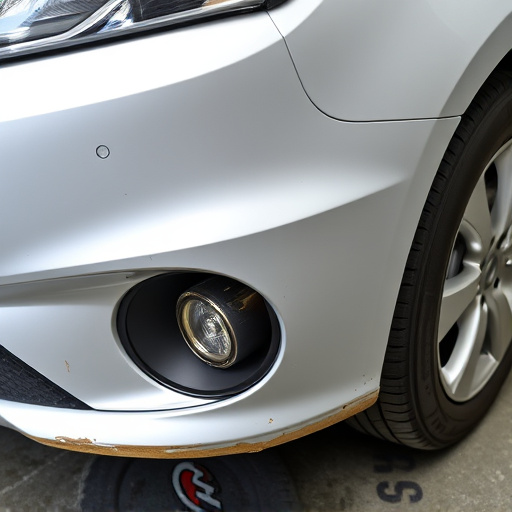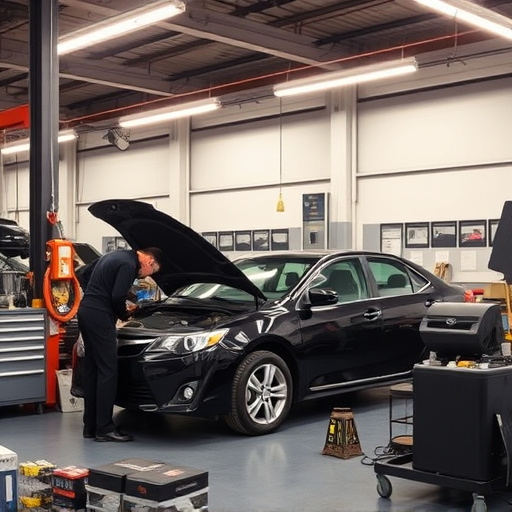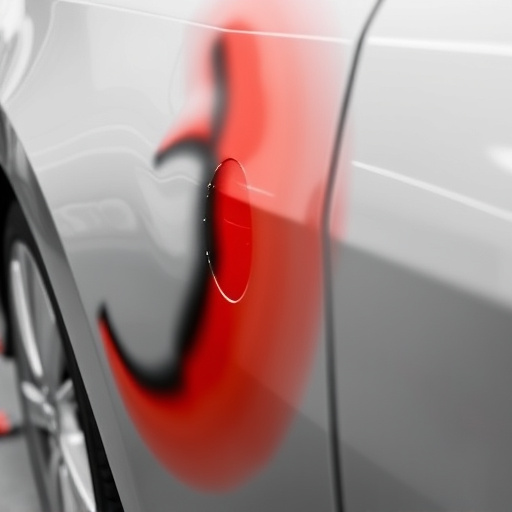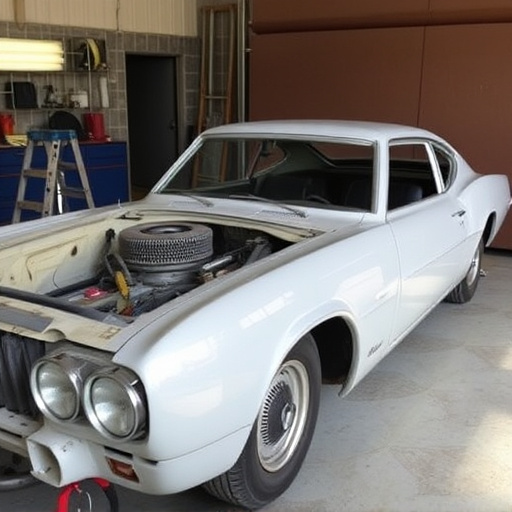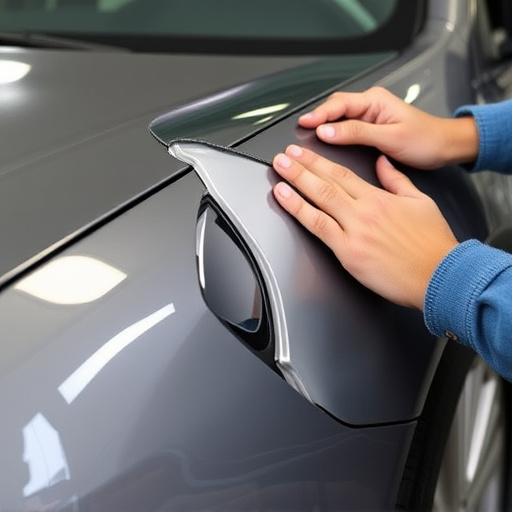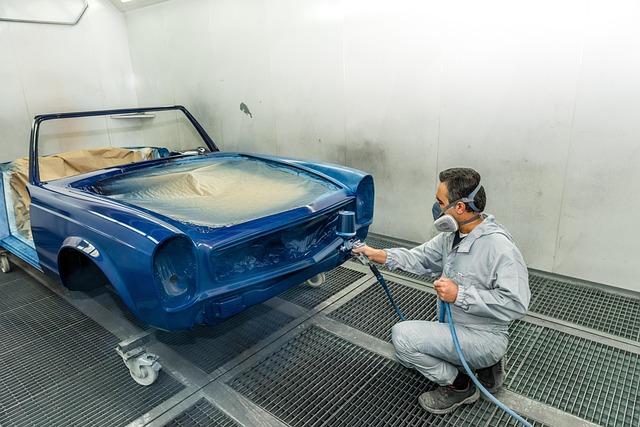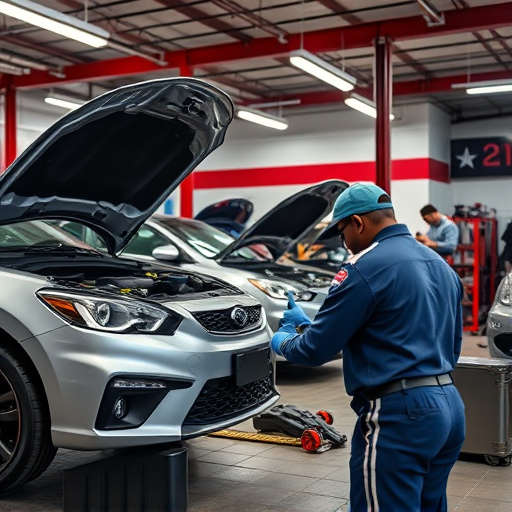Adopting recycled parts in collision repair offers significant environmental advantages, including reduced carbon footprints, waste minimization, and resource conservation. Auto body shops using reclaimed materials, such as steel from damaged vehicles, contribute to sustainability and meet industry demands for greener practices. This eco-friendly approach, involving the recycling of durable components like fenders and doors, promotes a circular economy and provides cost-effective solutions for collision repairs, balancing quality and financial considerations.
In today’s eco-conscious world, recycled parts are transforming the collision repair industry. This article explores why these repurposed components are becoming a game-changer for auto body shops. We delve into the environmental advantages, cost savings for repairers, and stringent quality assurance measures that ensure performance and safety. Discover how embracing recycled parts can contribute to sustainability while meeting the highest standards of collision repair.
- Environmental Benefits of Recycled Parts
- Cost-Effectiveness for Collision Repairers
- Quality Assurance and Performance Considerations
Environmental Benefits of Recycled Parts

The use of recycled parts in collision repair offers significant environmental advantages. By utilizing reclaimed materials, auto body shops can reduce their carbon footprint and contribute to a more sustainable future. One of the key benefits is minimizing waste generation, as these parts are meticulously disassembled from damaged vehicles, allowing for their reuse or recycling, thus diverting them from landfills. This eco-friendly approach aligns with the growing demand for greener practices in the automotive industry.
Additionally, recycled parts can play a crucial role in promoting resource conservation. Many of these components, such as fenders and doors, are made from durable materials like steel, which can be melted down and remolded multiple times without losing strength. This process, known as recycling metal, reduces the need for extracting new raw materials, preserving natural resources often required in car paint repair and Mercedes Benz repair processes. As a result, shops adopting recycled parts contribute to a circular economy, offering an efficient solution for fender repair or any other collision-related needs while preserving the planet’s valuable resources.
Cost-Effectiveness for Collision Repairers

Collision repairers often face the challenge of balancing quality repairs with budgetary constraints. Recycled parts offer a compelling solution to this dilemma by providing cost-effective alternatives without sacrificing integrity or durability. By sourcing used, yet functional components, repair centers can significantly reduce overall labor and material costs. This affordability is particularly beneficial for smaller collision repair shops and independent technicians, allowing them to compete with larger, more established businesses.
The use of recycled parts in collision repair also has a positive environmental impact, promoting sustainability and reducing the demand for new vehicle parts manufacturing. In many cases, these reused parts can be just as reliable as new ones, ensuring that vehicles are restored to pre-accident condition without breaking the bank. Additionally, with proper inspection and quality control measures in place, collision repair centers can offer customers a guarantee of safety and performance when using recycled parts for fender repair or vehicle paint repair services.
Quality Assurance and Performance Considerations

When it comes to quality assurance in collision repair, recycled parts play a pivotal role. These parts undergo rigorous testing and inspection processes to ensure they meet or exceed industry standards. This includes checking for structural integrity, material composition, and performance capabilities, ensuring that they can withstand the same forces and stresses as new components. Many reputable recycling facilities employ advanced technologies to evaluate and certify these parts, providing collision repair shops with reliable options for their projects.
Moreover, considering recycled parts for collision repair offers significant environmental benefits. They help reduce waste in landfills and minimize the demand for newly manufactured materials, which often requires substantial energy consumption. By utilizing recycled parts, collision repair shops can contribute to a more sustainable future while also potentially saving costs on labor and materials. This eco-friendly approach aligns with the growing trend of green collision repair practices, where tire services and other aspects of vehicle restoration are evaluated through an environmental lens.
Recycled parts offer a compelling solution for collision repair needs, combining environmental sustainability with cost-effectiveness. As the demand for eco-friendly practices grows, adopting recycled components can significantly reduce a repair shop’s carbon footprint while keeping costs under control. While quality assurance remains a concern, advancements in recycling technologies ensure that recycled parts meet strict performance standards. Embracing these parts is not just a responsible choice but also a strategic move to stay competitive in the modern automotive industry, where both sustainability and efficiency are paramount.
